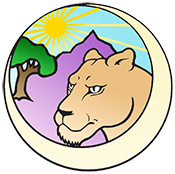 We think of the 3 aspects of karate as branches in a tree. These branches represent sport, art, and self-defense. While some forms of martial arts training focus heavily on the sport aspect, Karate has an equal balance of the three.
We think of the 3 aspects of karate as branches in a tree. These branches represent sport, art, and self-defense. While some forms of martial arts training focus heavily on the sport aspect, Karate has an equal balance of the three.
Sport
Practiced through sparring. We train for timing, combinations, endurance, courage, control, and spirit.
Art
Practiced through our kata. This is a formal exercise of predetermined movement against an imagined opponent. The execution is expressed through drama, breathing, and movement.
Self-Defense
We use simple techniques that can easily be done by most people.
Above all, safety and discipline ensure power is channeled positively.
A Brief History of Ai Mute Shotokan Karate



The founder of Shotokan is Gichin Funakoshi. He brought Shotokan from Okinawa to Japan. The art is called Shotokan because Funakoshi's pen name was "Shoto". "Shoto" translates as "the sound the wind makes as it passes through the tress". Kan translates as "house". This can mean either "clan" or the actual place in which Funakoshi trained his students. They trained at Shoto's house. Shotokan.
Sante Josol was ranked in Korean and Chinese martial arts. He began the process of moving away from the traditional Japanese style. He taught Shotokan to Laurence Berkley. Laurence Berkley is credited with the original development of Ai Mute Shotokan.
Bobby Peeler was Soke Berkley's top student. He continued to develop Ai Mute Shotokan in Detroit after Sensei Berkley moved away.
The head instructor at Mejishi Martial Arts is Sensei Jaye Spiro, a 9th degree black belt who has been teaching karate since the early 80s. She has also earned a 6th degree black belt in Modern Arnis.

